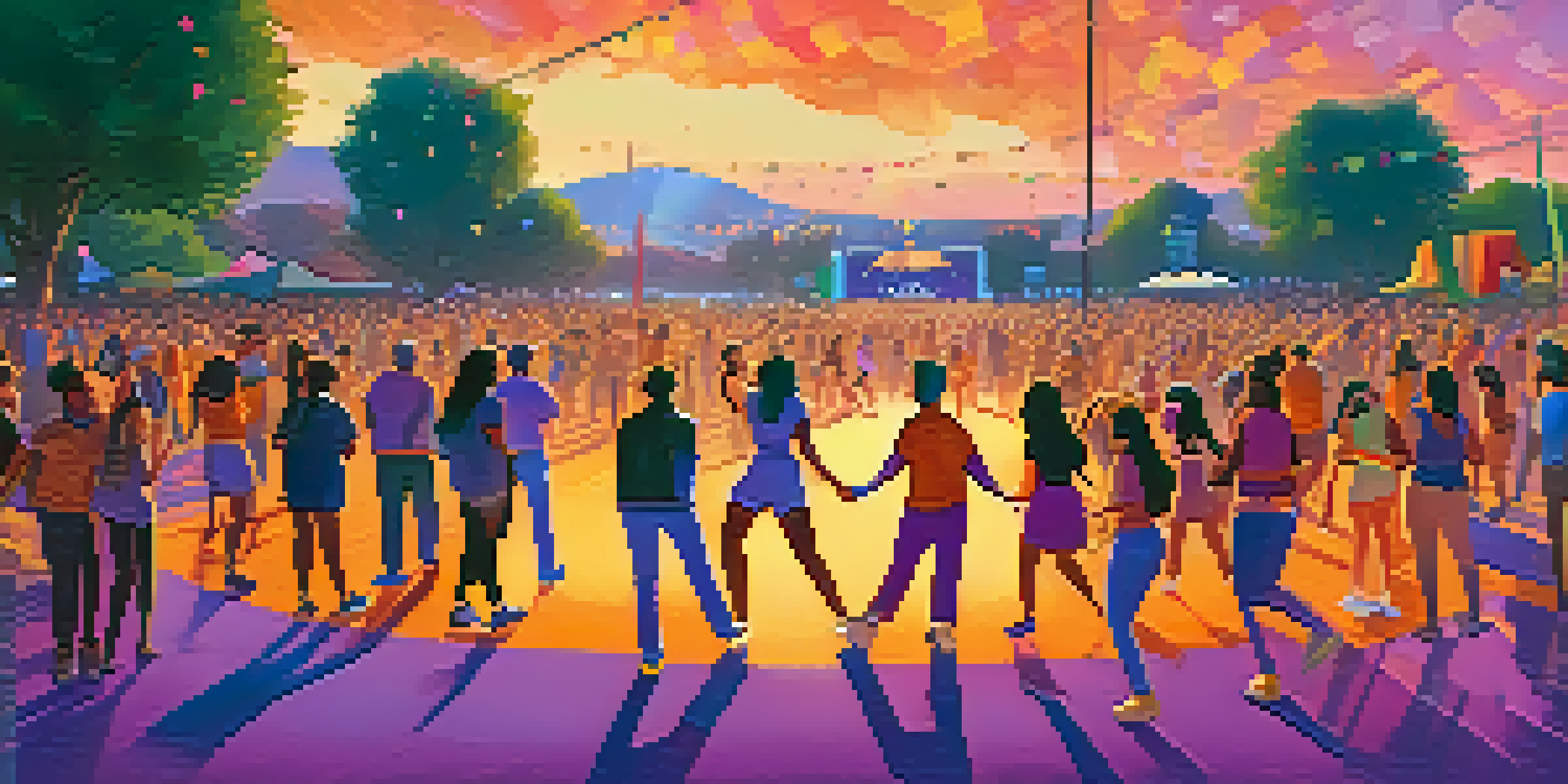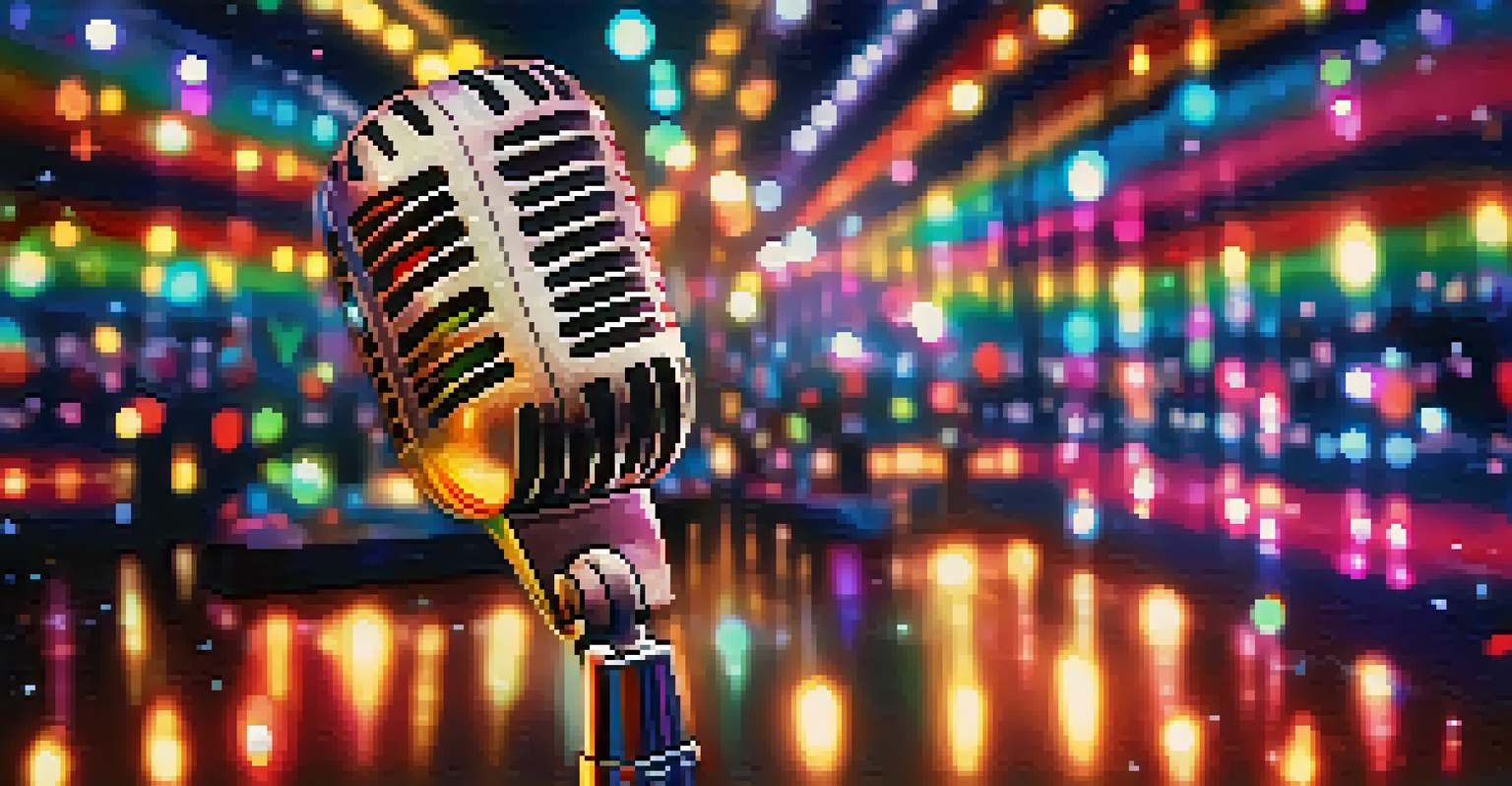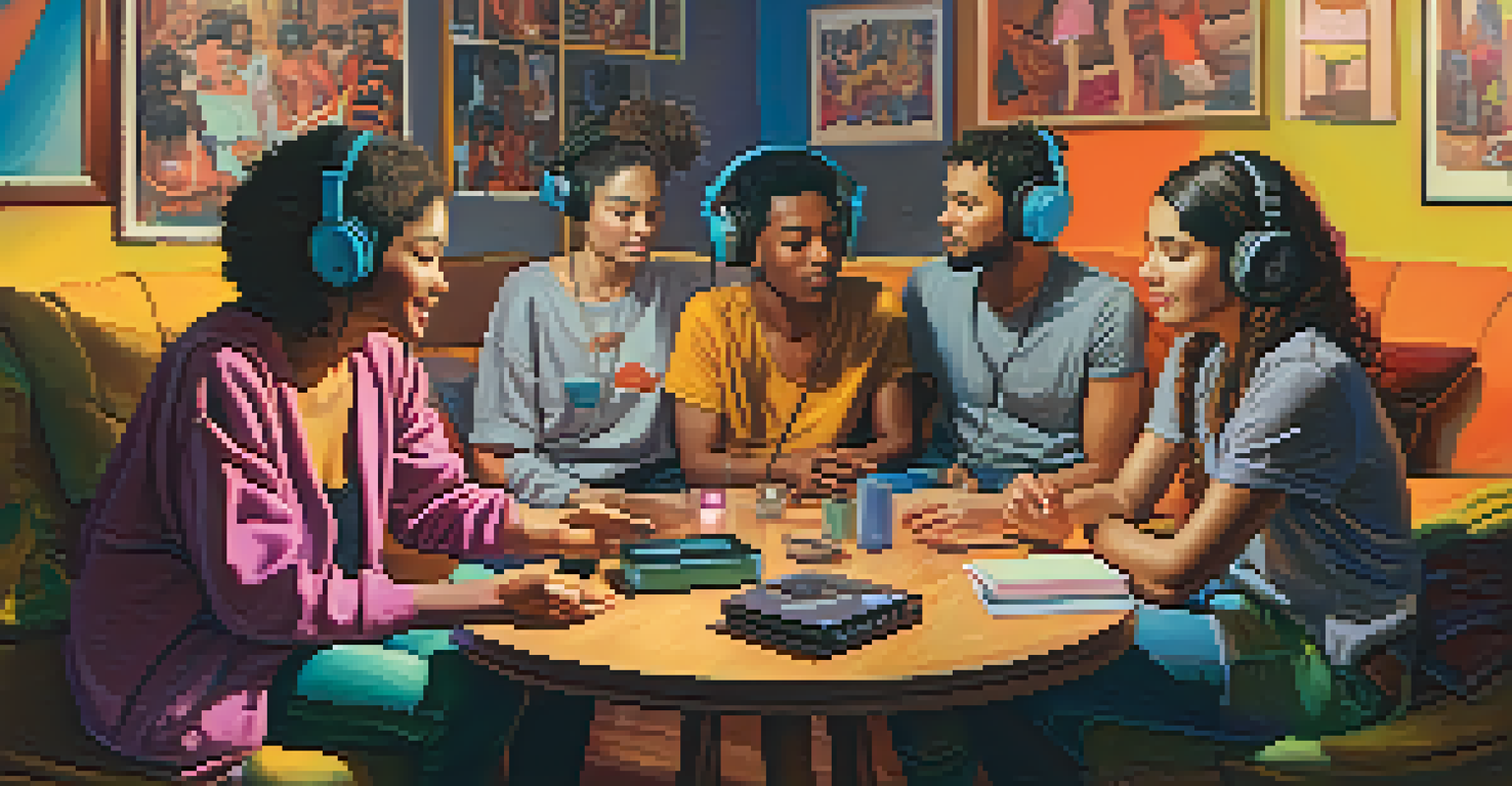Music and Gender Identity: A Complex Relationship

The Role of Music in Shaping Gender Identity
Music acts as a powerful medium through which individuals express their gender identity. From lyrics to performance styles, the way artists present themselves can challenge or reinforce societal norms. For many, engaging with music allows them to explore aspects of their identity that may not be acknowledged in their everyday lives.
Music is a powerful tool for self-expression and can challenge traditional gender norms.
Consider the rise of non-binary and gender-fluid artists in contemporary music. Their presence not only diversifies the industry but also encourages listeners to reflect on their own identities. This representation is crucial, as it validates the experiences of those who might feel marginalized in traditional gender roles.
Additionally, music can foster a sense of community among those navigating their gender identity. Concerts and festivals often become safe spaces where individuals can connect and express themselves freely, reinforcing the idea that music transcends barriers of gender.
Lyrics as a Reflection of Gender Experiences
Lyrics often serve as a mirror to the artist's personal experiences, particularly in relation to gender. Many songs tackle themes of gender identity, sexuality, and self-acceptance, resonating deeply with listeners who share similar feelings. For instance, artists like Sam Smith and Lizzo have used their platforms to address issues surrounding gender and body positivity.

These lyrical narratives can empower listeners, offering them solace and understanding. When someone hears a song that articulates their struggles, it can be a pivotal moment in their journey of self-discovery. It’s like finding a friend who truly gets what you’re going through.
Music Empowers Gender Expression
Music serves as a vital platform for individuals to explore and express their gender identity, fostering community and challenging societal norms.
Moreover, lyrics can also challenge societal norms. By addressing topics like gender fluidity and breaking away from traditional roles, artists contribute to a broader conversation about acceptance and understanding in society.
The Impact of Genre on Gender Expression
Different music genres often carry distinct connotations regarding gender expression. For instance, pop music has historically embraced flamboyance and self-expression, making it a welcoming space for LGBTQ+ artists. In contrast, genres such as heavy metal may exhibit more traditional notions of masculinity, which can influence how gender is expressed among artists and fans alike.
The beauty of music is that it transcends boundaries and can unite people of all identities.
This genre-specific dynamic can shape how listeners perceive their own gender identity. A young person drawn to a particular genre might feel pressured to conform to the associated gender norms, while others may find freedom in genres that celebrate diversity.
Ultimately, the genre someone identifies with can provide a sense of belonging or, conversely, create barriers. Navigating these dynamics is essential for artists and listeners as they carve out their unique identities within the musical landscape.
Music as a Tool for Activism in Gender Identity
Throughout history, music has played a vital role in social movements, including those centered on gender rights. Songs like 'Born This Way' by Lady Gaga and 'I Will Survive' by Gloria Gaynor have become anthems for the LGBTQ+ community, promoting acceptance and resilience. These tracks not only entertain but also educate and inspire action.
Artists often use their platforms to advocate for gender equality and challenge stereotypes, effectively merging art with activism. This not only raises awareness but also mobilizes fans to engage in meaningful conversations about gender identity.
Lyrics Reflect Gender Experiences
Song lyrics often resonate deeply with listeners by addressing themes of gender identity and self-acceptance, providing solace and empowerment.
Furthermore, music festivals and events frequently serve as spaces for activism, where performers and audiences unite to promote messages of love and acceptance. This intersection of music and activism highlights the profound connection between art and societal change.
Cultural Influences on Music and Gender Identity
Cultural backgrounds significantly shape how gender identity is expressed in music. Different cultures have unique traditions and norms that influence musical styles, performance, and lyrical themes. For example, in some cultures, traditional music may uphold specific gender roles, while contemporary genres may challenge these norms.
Artists often draw inspiration from their cultural heritage, blending traditional sounds with modern influences. This fusion creates a rich tapestry of musical expression that reflects the complexity of gender identity across diverse backgrounds.
Moreover, the global exchange of music allows for the sharing of ideas and experiences, promoting a broader understanding of gender identity. As artists collaborate across cultures, they break down barriers and encourage a more inclusive dialogue.
The Role of Fans in Shaping Music and Gender Identity
Fans play a crucial role in influencing how gender identity is perceived in music. The support and acceptance they offer can empower artists to express themselves authentically, while also creating a community that celebrates diversity. When fans rally behind artists who challenge gender norms, it fosters an environment of acceptance.
Additionally, fan communities often become spaces for discussion around gender identity. These groups provide a platform for individuals to share their own experiences, connect with others, and explore their identities in a supportive environment.
Fans Shape Music and Identity
The support of fans is crucial in promoting acceptance and representation in music, creating a vibrant community that celebrates diverse gender expressions.
This dynamic interaction between artists and fans highlights the importance of community in the music world. As fans advocate for representation and inclusivity, they help shape the future of music and its relationship with gender identity.
Future Trends in Music and Gender Identity
As society continues to evolve, so too does the relationship between music and gender identity. Emerging artists are increasingly challenging traditional norms, embracing a spectrum of gender expressions that reflect modern understandings of identity. This shift is evident in the growing popularity of non-binary artists and those who defy conventional gender roles.
Technology also plays a significant role in this evolution. With platforms like TikTok and YouTube, artists can share their music and messages with global audiences, bypassing traditional gatekeepers. This democratization of music allows for greater representation and diversity in the industry.

Looking ahead, we can expect to see even more conversations around gender identity in music. As artists continue to push boundaries and challenge societal norms, the musical landscape will likely become an even more inclusive space for all expressions of identity.